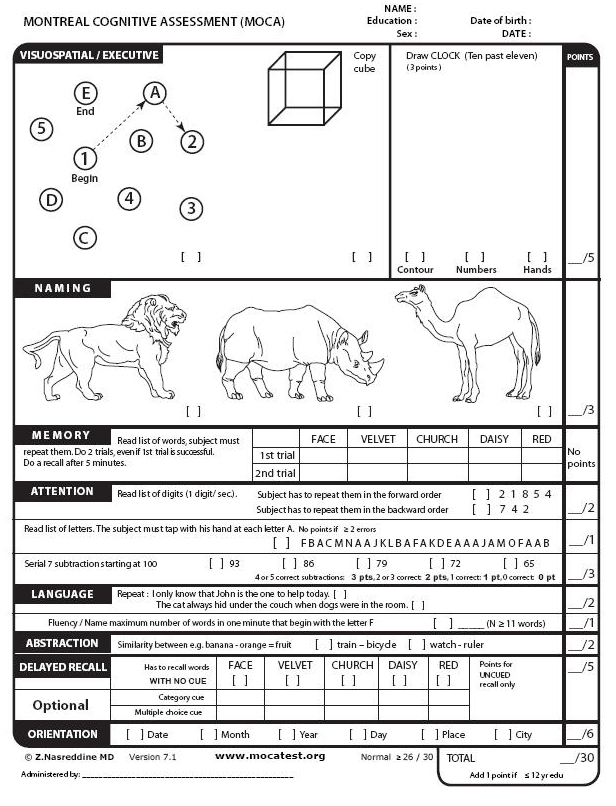


The owner is responsible for looking after the service animal’s needs, including the cleanup and disposal of feces. The owner is responsible for the conduct of the service animal while on MOCA property. At times, due to capacity situations in public areas, visitors with disabilities accompanied by service animals may be advised that the crowded conditions may make it difficult to manoeuvre. MOCA anticipates there will be special situations and is prepared to make every effort to accommodate the circumstances on an individual basis, as they arise, keeping safety to the visitors, service animals, and artworks in mind. The Montreal Cognitive Assessment Hearing Impairment (MoCA-HI) was developed to facilitate the detection of cognitive impairment in subjects with a hearing impairment. MOCA enforces a general by-law that does not permit pets on the premises. They are used by people with disabilities to overcome barriers much like assistive devices, such as a white cane or a wheelchair. Service animals are not pets - they are working animals. The person with a disability may be asked to provide a letter from a physician or nurse confirming that the service animal is required because of his or her disability.
MOCA PRINTABLE FORM HOW TO
MOCA ensures that all employees, volunteers, and others dealing with the public are properly trained in how to interact with people with disabilities who are accompanied by a service animal. Service animals are most commonly dogs, but can also include ferrets, monkeys, and other animals. Service animals may be used for, but not limited to, the following disabilities: vision loss, physical disability, hearing loss, autism, epilepsy, etc. Service animals are allowed on the parts of our premises that are open to the public.Ī service animal may accompany a visitor or any third party with a disability to all MOCA areas that are open to the public and designated office areas. We welcome people with disabilities and their service animals.


 0 kommentar(er)
0 kommentar(er)
